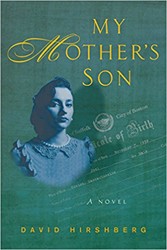Jacobo’s Rainbow opens on June 10, 1980, the fifteenth anniversary of the day Jacobo Toledano was sent to jail, an event that would define the rest of his life.
In the early 60s, Jacobo leaves his tiny New Mexican enclave of Arroyo Grande, where a small, insular community has existed for over two hundred years. He has been carefully schooled to keep his background to himself. Aaron, his father, has often told him, “Speaking is silver, silence is gold.”
The tall, red-bearded Jacobo arrives at the University of Taos as an outsider — a naïve, unsophisticated young man unaccustomed to the nuances, culture, and pace of modern society. He becomes involved with a protest group advocating for the Free Speech Movement and an end to the Vietnam War. Its leaders — Myles, a self-aggrandizing manipulator, and the volatile and contemptuous Claudia — convince Jacobo to join their cause. They instruct him to keep a running journal and make sketches of campus events and confrontations. He participates in the takeover of a university building, and during the takeover, he realizes how much duplicity, hypocrisy, and hate lie beneath the surface on both sides of the conflict. He leaves the building with the valuable and incriminating notebook. Jacobo and Herzl, a Jew targeted as the protest’s Judas, become the subjects of a police hunt after the takeover is craftily defused by Myles. They steal a small boat and hope to row down the river to the safety of Arroyo Grande.
In Jacobo’s Rainbow, Hirshberg presents a how-to guide for political unrest, artfully painting a picture of how causes take root and find their leaders, and depicting the public and private personas of false prophets as well as the mentality of hangers-on and mobs.
Antisemitism is a major theme in the novel, which Jacobo becomes aware of from his Jewish friends’ stories, which illustrate the precariousness of Jews’ lives around the world. There are also hints and clues about the Toledano family. Their very names, as well as their stories, sayings, and customs are part of the secret history that Jacobo eventually shares with his friends.
Hirshberg explores many other themes, from the treatment of soldiers returning from Vietnam to the issues facing Native Americans. With a fast-moving plot, well-drawn characters, and an inspiring message, Hirshberg has given readers an engaging, thoughtful, and original story.
Renita Last is a member of the Nassau Region of Hadassah’s Executive Board. She has coordinated the Film Forum Series for the Region and served as Programming and Health Coordinators and as a member of the Advocacy Committee.
She has volunteered as a docent at the Holocaust Memorial and Tolerance Center of Nassau County teaching the all- important lessons of the Holocaust and tolerance. A retired teacher of the Gifted and Talented, she loves participating in book clubs and writing projects.




